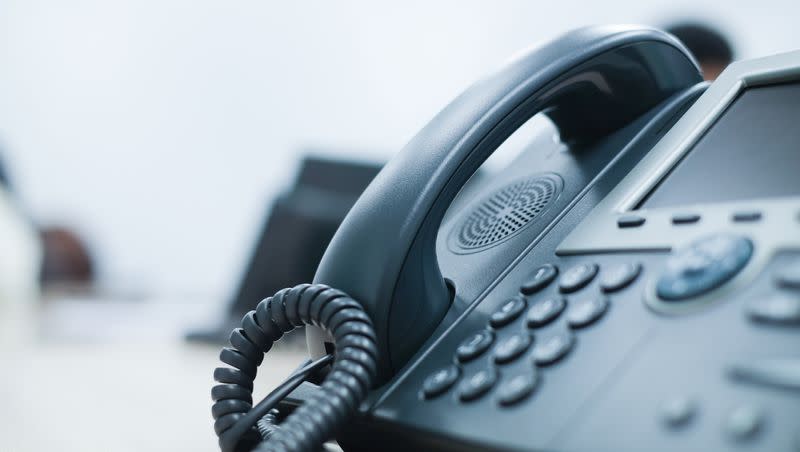‘I deserve to have a phone that works’: The effects of phone companies removing landlines

Phone companies are moving to cut the cord with wired telephone landlines in a move to transition to advanced technology.
Earlier this month, the California Public Utilities Commission considered an application by AT&T to give up and abandon their copper-wire landline service — Carrier of Last Resort — citing that the technology is in low-demand, per USA Today.
While the request is currently under review, per CBS News, this could be a high risk for multiple people, over multiple situations.
1. The elderly population
This waiving of responsibility could harm a major part of the country’s population.
“There’s lots of concerns, particularly for older people, about how they will connect to people without having that landline,” said Susan Weinstock, CEO of the Consumer Federation of America, reported USA Today.
For instance, 80-year-old California resident Patricia Pereira spoke with CBS News that she, relying on a wired landline for 58 years, had to obtain a cellphone after her landline was disconnected. The problem was, the town she lives in, Campo Seco, is a cellphone dead zone.
Local reporters of CBS13 tested this and tried contacting Pereira through her cellphone. Every attempt led to a disconnection, per CBS News.
Tim Morstad, the government affairs director for AARP, shared to USA Today, “Traditional landlines have provided reliable service for over a century, and while many consumers have adopted new technologies, not all have access to affordable alternatives to landlines.”
Weinstock noted that multiple senior citizens, although capable of learning the new technology, prefer the cheaper option of a landline.
2. Small businesses and medical buildings
Medical facilities and smaller businesses in particularly rural communities would be significantly altered by the change.
Patrick Blacklock, president and CEO of the Rural County Representatives of California said in a statement to CNN, “Traditional landline telephone service is the most dependable communications tool currently available in rural communities and is vital to reliably accessing 9-1-1.”
3. Consumer/business equipment
It’s not only small corporations and medical buildings getting affected by the proposal: It could potentially lead to multiple types of equipment challenges.
Gartner research vice president Lisa Pierce stated to USA Today that 2022 data estimates this year that 20% of all U.S. voice connections are through landlines. That percentage represents approximately 88 million lines across the nation.
Pierce added that most home-alarm systems, call boxes and elevators need and rely on copper-wire landlines.
And it wouldn’t be easy to replace them.
Will McKeon-White, a senior analyst at Forrester Research ,told CNN that landline systems can be difficult to access for phone service workers because they can be sealed in walls or stored in hard-to-reach areas — if their locations are known.
“Landlines are slowly being removed and replaced, but it’s a spectrum, and hard to calculate the volume of copper wire devices because of how many different forms these take and the fact that organizations seem to discover dozens of these devices during replacement operations,” McKeon-White told CNN.
4. Events of disaster
USA Today shared a story about 72-year-old Charlene Hopey, who reportedly lives in region of the Santa Monica Mountains.
Over periods of California wildfires and earthquakes, Hopey’s friends — who all switched over from copper-wire landlines to wireless landlines or cellphones — couldn’t be contacted during the calamities.
“People could not communicate in an emergency,” said Hopey, reported USA Today.
Blacklock said to CNN, “It is essential to retain affordable, safety net services especially in disaster-prone areas with fewer market options and comparable service quality that copper-based landline phone service provides.”
Regarding when the power goes out, CNN claimed that copper-wire landlines are regularly more reliable than Voice over Internet Protocol, or VoIP, services, as they can still function during a power outage — as opposed to internet-based programs.
Related

